Key distributors of 2023 Palme d’Or winner Anatomy Of A Fall tell Tim Dams what drew them to the film in the first place, how they released it in their territory — and what their plans are for Cannes this year.
Anatomy Of A Fall’s journey towards Oscar and international box-office success started last year with its premiere in Competition at Cannes Film Festival, where it won the Palme d’Or.
A few distributors arrived on the Croisette having pre-bought the Justine Triet-directed film at Unifrance’s Rendez-Vous in January 2023 off the back of reading the script (even though the film was already shot, sales agent mk2 Films opted not to show any visuals at that stage), but most acquired it after the Cannes premiere.
Here Screen International talks to some of them to discover why they acquired it, how they marketed it to audiences in their territory and what their plans are for Cannes this year.
Anatomy Of A Fall was first released in France in August 2023 through distributor Le Pacte. Its international rollout unfolded in the months after, with territories such as the US, Italy and MENA launching in October and the UK and Germany in November. Its worldwide box-office to date is $35.5m on a reported budget of $6.6m (€6.2m). Anatomy Of A Fall’s awards haul includes an Oscar and a Bafta for best original screenplay, plus five European Film Awards.
US
Jeff Deutchman - President of acquisitions & production, Neon
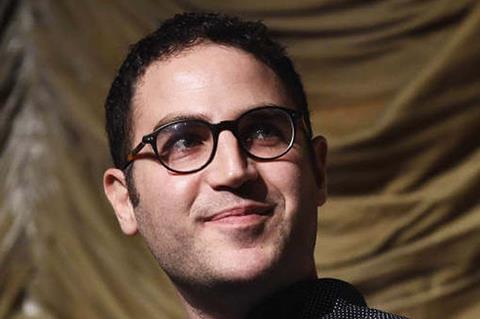
At what stage did you board Anatomy Of A Fall?
As a finished film. My colleague [director of development, acquisitions and production] Mason Speta and I saw it at the first buyers screening in Cannes. I nearly didn’t get in because I was running late, but thankfully the sales agent booted someone out for me. I’m very grateful to that person for his sacrifice.
Why did you board the film, and was it a competitive bidding situation in your territory?
We thought the film was amazing. A rare feat of filmmaking that is artistically satisfying on every level and also captivating in a way that makes it accessible to an audience outside of die-hard cinephiles. It was competitive, but not as competitive as it probably should have been.
How did you decide to release the film?
The first piece of our strategy was to say from day one, even before winning the Palme d’Or, that this was an Oscar contender in multiple categories including best picture. We also immediately thought this was France’s first real opportunity to win the best international feature Oscar since Indochine. Historically, winning the Palme was not seen as a guarantee of anything in the Oscar race other than possibly becoming a frontrunner for best international film, but our success with Parasite changed all that, only further bolstered by Triangle Of Sadness nominations for best screenplay, director and picture. So with Anatomy, we were confident from the beginning.
We also had a film with a quasi-true crime angle and decided not to shy away from positioning it as a more mainstream thriller. Even though it’s ultimately more sophisticated than that, we led with the hook, “Did she do it?” which proved to be a very effective provocation, both for getting audiences to come and for word of mouth.
What was the box-office result?
It grossed $5m, making it the fourth-highest-grossing foreign-language specialty film of the past 10 years. It played from October through to March, consistently grossing even after it was released on VoD.
What secondary windows have you been able to exploit?
We released the film on TVoD [transaction video-on-demand] and EST [electronic sell-through] in December, capitalising on the holidays and the film’s awards success, allowing it to reach an even broader audience and gross more than 100% of its theatrical gross. It premiered on Hulu after the Oscars and has been one of the most viewed films on any streaming service since its debut.
With a 180-day window between theatrical and SVoD, the film has been a major success in each window and is an example of how traditional windowing is still the best model for films of a certain calibre.
What are your acquisition priorities heading into Cannes?
We pre-bought Parasite, Titane, Memoria, Crimes Of The Future, Broker and La Chimera at script stage. We acquired Portrait Of A Lady On Fire, Triangle Of Sadness, The Worst Person In The World, Perfect Days, Anatomy Of A Fall and Robot Dreams as finished films at Cannes. When we went to Cannes last year, if you had asked me what would be the next Triangle Of Sadness, we wouldn’t have known yet. The beauty of Cannes is that even as they continue to support the greatest, most established directors in the world, they are also constantly discovering the next generation.
Spain
Enrique Costa - Founder & distributor, Elastica Films
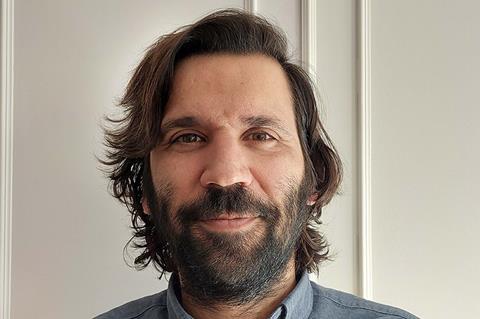
At what stage did you board Anatomy Of A Fall?
We acquired it at Unifrance’s Rendez-Vous — mk2 offered the project five months before Cannes, before it was confirmed it was playing at Cannes. The sales agent explained the whole package perfectly: cast, director, producers and the most essential element — a solid script. I had a long conversation with Jaume Ripoll, from [Spanish SVoD platform] Filmin, and we saw it as the most robust project and one we couldn’t miss. We acquired it together, as we previously did with Leos Carax’s Annette and Ryusuke Hamaguchi’s Drive My Car.
Why did you board the film?
My personal admiration for Justine’s previous works led me to actively pursue her to join our label. We are proud to have the latest films from esteemed directors like Céline Sciamma, Mia Hansen-Love, Carla Simon and Charlotte Wells, and Justine’s addition further enriches our portfolio. Cannes was fantastic for us; we also took Jonathan Glazer’s The Zone Of Interest (co-distributing with Wanda) and Alice Rohrwacher’s La Chimera. Also, legal dramas like Anatomy have a lot of potential in the Spanish market, and the script strongly supported it.
How did you decide to release the film?
As soon as we saw the movie in Cannes, we started thinking about strategy: from the launch date, a crucial choice, to what festival it should premiere at. We are always open to discussing release strategies with other distributors worldwide. In this case, we discussed plans and ideas with Italian distributor Teodora.
When we saw its success with French audiences, it confirmed the strength of the film and we built a wider release compared to Justine’s previous releases in Spain. It premiered in San Sebastian. We also had a great experience at the Valladolid Film Festival, where we showed Anatomy to exhibitors and programmers at its Market of Independent Cinema. mk2 was really into supporting local distributors like Elastica to help with materials. It was released on December 6.
What was the box-office result?
Anatomy really overperformed. After 19 weeks, the movie is still in cinemas, with close to 400,000 admissions and more than $2.7m (€2.5m) at the box office — the best result ever for Elastica.
What secondary windows have you been able to exploit?
After a 112-day window, the movie is on Movistar and Filmin as, respectively, a pay-TV and SVoD window.
What are your acquisition priorities heading into Cannes?
If someone has the confidence to say which film will be the new Anatomy, I would like to meet them. We always arrive at Cannes knowing we will see many excellent movies — and that only a few will end up with Elastica. It’s a very competitive market.
Australia & New Zealand
Paul Wiegard - Co-founder & CEO, Madman Entertainment
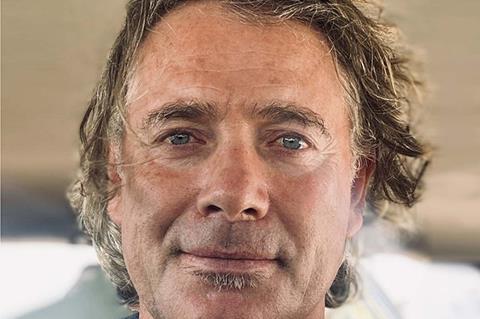
At what stage did you board Anatomy Of A Fall?
Immediately post-premiere in Cannes, before the Cannes awards.
Why did you board the film?
We could clearly define a primary audience for the film in Australia and New Zealand (ANZ) and because we could position the film as a thriller and drama. Madman is also the distributor of The Zone Of Interest, which in combination with Anatomy we thought could generate greater publicity for Sandra Hüller and the respective films.
We loved her performance in 2016’s Toni Erdmann, which we also distributed, and we previously worked with mk2 and Justine Triet on her 2019 film Sibyl.
How did you decide to release the film?
We consulted with mk2 on all aspects of the strategy. For both ANZ markets, we introduced the film via the major state film festivals. In New Zealand, the film opened the New Zealand International Film Festival in Auckland in July and went into general release hot on the heels of the US release [in October]. For Australia, we took an alternative strategy, playing festivals and major outdoor screenings over the Australian summer and then timing the national release with the Oscar awards ceremony.
What was the box-office result?
The film achieved $2m (a$3m) across the ANZ territory, and continues on 20-plus screens into week 12. It has been several years since a French film grossed more than a$1m ($650,000) at the Australian box office. It ultimately performed three times better than our expectations.
What secondary windows have you been able to exploit?
We have endeavoured to maintain ‘traditional’ windows, pushing the premium VoD launch to 12 weeks after the theatrical release.
What are your acquisition priorities heading into Cannes?
Undoubtedly, the 2023 edition of Cannes was a vintage year. We are arriving with [Ali Abbasi’s] The Apprentice, a pre‑buy off script. On paper, the 2024 edition has several highly anticipated films and the festival prides itself on identifying great work, so we are enthusiastic.
Italy
Stefano Finesi - Chairman, Teodora Film

At what stage did you board Anatomy Of A Fall?
At script stage at Unifrance’s Rendez-Vous.
Why did you board the film, and was it a competitive bidding situation in your territory?
The script was amazing — it’s not often you find such complex and captivating screenplays. It was the perfect starting point for a great arthouse film capable of working as genre cinema. Furthermore, we knew the lead role would go to Sandra Hüller, who we’ve admired for a long time. There was definitely strong interest from other distributors in Italy. The minimum guarantee (MG) paid at script stage was not cheap and a bit risky, but we would have paid much more at a later stage.
How did you decide to release the film?
It was released in Italy on October 26, immediately after its premiere at Rome Film Festival. Justine Triet attended the festival and presented it to the Italian audience and press. The marketing strategy greatly enhanced the thriller aspect of the film, and the awards received all over the world and tremendous word of mouth did the rest. We worked closely with mk2, sharing our ideas on the release strategy and receiving great support, especially when Justine came to Italy for the premiere. Oscar nominations contributed to bringing the film back to theatres. In Italy there is no distribution support for foreign films, but we were able to rely on Films on the Move from Creative Europe’s Media programme to finance a marketing campaign.
What was the box-office result?
The film achieved 275,000 admissions, almost €1.8m ($1.9m) at the Italian box office. It’s a very good result, definitely above our expectations. In some cinemas, Anatomy Of A Fall played more than five months.
What secondary windows have you been able to exploit?
For the pay-1 window we made an agreement with Mubi Italia, which made the film available approximately five months after its release.
What are your acquisition priorities heading into Cannes?
This year seems like a transition year for the market. Compared to the past, we will not arrive at the festival with deals already closed, but we will certainly go in search of hidden gems and new voices.
Middle East & North Africa (MENA)
Elie Touma - Director of acquisitions and distribution, Front Row
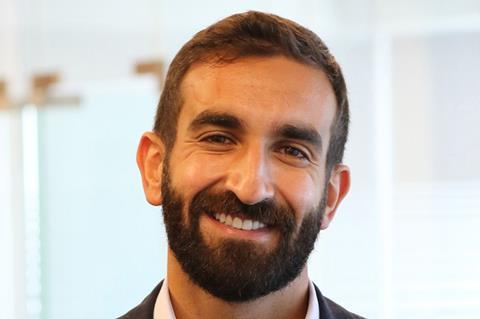
At what stage did you board Anatomy Of A Fall?
In Cannes, right after its premiere.
Why did you board the film?
We thought it was terrific — and that it fitted our brand perfectly. We also have a well-established relationship with mk2, who we trust blindly.
How did you decide to release the film?
We started its run at El Gouna Film Festival in Egypt in October, and then premiered the film theatrically day-and-date with Neon in the US as our market is highly influenced by the US marketing campaign spillover. The MENA market is notoriously blockbuster-driven; it is incredibly challenging to release non-English language and non-local films as the region lacks a true independent cinema circuit and multiplexes do not really believe in them, regardless of the festival or awards hype.
To combat that, the campaign was PR-driven and we focused on organising paid previews to spread the positive word of mouth as we really believed in the potential of the film. On top of that, the majority of our spend went towards promoting the film on our social-media channels and through the exhibitor’s channels, as the costs for any offline activation/advertising in this market is not worth investing in.
What was the box-office result?
It grossed just over $50,000, which is respectable for ‘foreign’ films in the MENA region and was in line with our expectations. It played for nearly three weeks but it was challenging to keep screens given the large number of local releases on a weekly basis in our market. Most of the audience for the film came on premium VoD.
What secondary windows have you been able to exploit?
The film premiered on TVoD (iTunes/GPlay and local platforms) on December 23, day and date with the US and France. It has its pay-TV premiere with Front Row’s output partner BeIn Media Group, the region’s largest pay-TV network.
What are your acquisition priorities heading into Cannes?
Front Row’s DNA is synonymous with highbrow titles like Anatomy Of A Fall. Recent acquisitions include Triangle Of Sadness, 20 Days In Mariupol, The Boy And The Heron and How To Have Sex, and the goal is to always find similar projects, in addition to larger packages from the sales agents that we deal with. Our acquisitions strategy is quite varied, with loads of pre-buys but also acquisitions of films in post or completed films. For films premiering at Cannes, that entirely depends on the film. We could end up buying the film before its premiere or after — we’ve done both over the years.
Switzerland
Claudia Badoer - Managing partner, Filmcoopi Zurich

At what stage did you board Anatomy Of A Fall?
We closed the deal right after its Cannes premiere, but the negotiations already started at script stage.
Why did you board the film, and was it a competitive bidding situation in your territory?
We had Justine Triet’s previous film Sybil in our line-up and wanted to continue our collaboration. Sandra Hüller as the lead was also very attractive for us — we had worked with her on Toni Erdmann. She is well-known in Switzerland, particularly in the German-speaking region. The situation became quite competitive after the Cannes premiere. There was at least one other distributor that wanted to buy it.
How did you decide to release the film?
Switzerland has three language regions (French, German, Italian) and we launched the film at a different date in each, at the same time as France (August 23), Germany (November 9) and Italy (October 26) respectively. The Swiss premiere was held at a packed Piazza Grande screening during Locarno Film Festival. This gave the film great promotion, press and word of mouth.
We launched an extensive marketing campaign directed at an arthouse audience while also focusing on specific target groups; we worked with the trailers from our French and US colleagues to address these different groups. The awards and international media coverage definitely helped the success at the local box office. For the campaign in the German-speaking region, it was important for us that Sandra Hüller could come to Switzerland to support that release.
What was the box-office result?
It is still playing in cinemas after 35 weeks. So far it has taken $1.2m (chf1.1m) with 73,500 admissions.
What secondary windows have you been able to exploit?
On December 20, we launched it on VoD/EST in the French-speaking region. The VoD release in the German-speaking region was set for February 29 and the one for the Italian-speaking region for May 2. All the relevant Swiss streaming platforms currently offer the film. From August 29, the film plays on pay-TV (Sky Switzerland) in the German-speaking region.
What are your acquisition priorities heading into Cannes?
We are looking for films we can launch this year so the official selection is our priority. We’re also scouting projects that have not yet been completed. Last year, official selection had a great number of films for a broad arthouse audience. This had a positive effect on our domestic arthouse market. I hope this year’s edition can match up, considering the participation of iconic filmmakers such as Yorgos Lanthimos or Jacques Audiard, or our pre-buys L’Amour Ouf (Beating Hearts) by Gilles Lellouche and En Fanfare (The Marching Band) by Emmanuel Courcol. With our focus on films made by women, I am looking forward to seeing the four selected films in Competition by female filmmakers.
Benelux
Dirk De Lille - COO, Paradiso Filmed Entertainment

At what stage did you board Anatomy Of A Fall?
In January 2023, during Unifrance’s Rendez-Vous. A colleague distributor from Italy had read it by that time and found it spectacular, so we made it a priority read.
Why did you board the film?
We knew about the work of Justine but simply the script was a page-turner and a real mix of thriller, psychological drama and courtroom drama. We realised it could result in a very controversial film.
How did you decide to release the film?
Once the Competition entry in Cannes was confirmed, we started with digital awareness posts in collaboration with mk2. The Palme d’Or significantly raised the awareness among the more general audience. We also tapped into the US materials that were more focused on the thriller aspect. This helped us to extend the digital campaign to a wider demographic. In Belgium, we released it day-and-date with France, which had a significant impact on the campaign. For Holland, we obtained Creative Europe Media support which allowed us to sustain the digital campaign and enhance the excellent word of mouth.
What was the box-office result?
A perfect storm coming together resulted in over 250,000 visitors and over €2.3m ($2.5m) in Benelux.
What secondary windows have you been able to exploit?
We had very significant buys on TVoD from December 2023. The pay-1 window opened in April as we have emphasised a long theatrical run. It is with Film 1 in Holland and BE TV and Proximus in Belgium.
What are your acquisition priorities heading into Cannes?
During Cannes last year, we acquired Perfect Days after its screening in Competition and we are looking at this year’s contenders. We are heading to Cannes with opening film The Second Act from Quentin Dupieux and we’re also happy to be part of Leonardo Van Dijl’s Julie Keeps Quiet, which premieres in Critics’ Week.


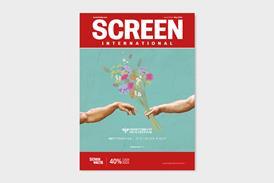
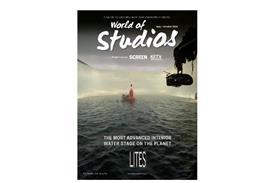











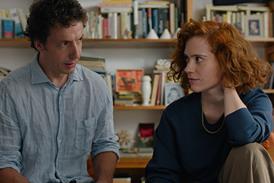


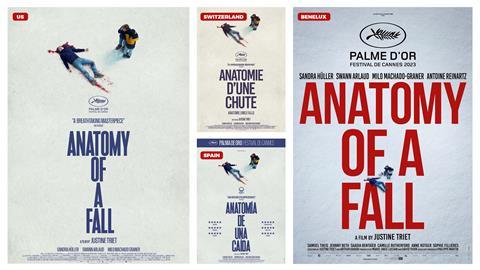






No comments yet